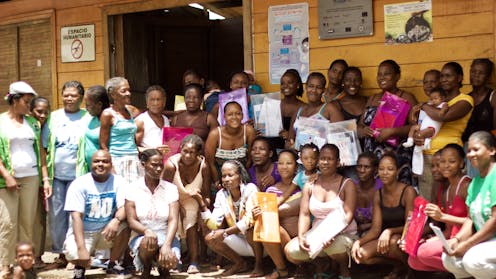We asked over 8,700 people in 6 countries to think about future generations in decision-making, and this is what we found
- Written by Stylianos Syropoulos, Assistant Professor of Psychology, Arizona State University
 Shifting the public's perspective toward greater concern for future generations could result in more support for climate change policies, among others.Artur Debat/Moment via Getty Images
Shifting the public's perspective toward greater concern for future generations could result in more support for climate change policies, among others.Artur Debat/Moment via Getty ImagesPeople often prioritize the well-being of family, friends and neighbors, as they feel a closeness emotionally and share the same temporal context. But they...









